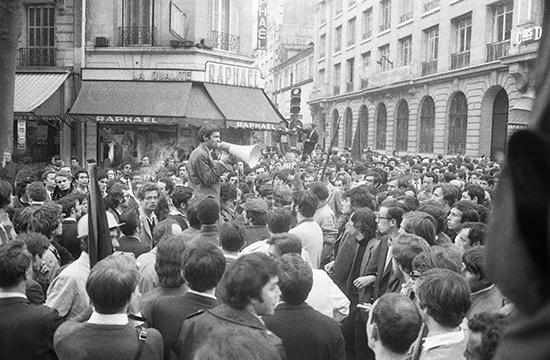|
Obsession with sexual morality
By Isabelle De Gaulmyn
French writer Gabriel Matzneff, now 83, wrote unabashedly for years about having sex with underage boys and girls, and no one raised an eyebrow. But that changed recently when one of his victims leveled charges against him. Should the complacency shown towards a man who hid behind his status as a writer to justify his worst predatory perversions lead to the questioning of everything that came out of the French civil unrest in May 1968? Our era is characterized by hatred for what was cherished a short time ago. At least some people are not far from thinking so. First of all, child abuse does not originate with 1968, but much before it. However, one wonders how the "freedom generation", which has been at the forefront of the media, was forced into submission. Benedict XVI, in a recent text, notes that the crushing of morals contributed to the pedophilia crisis in the Church. The former German pope thus explains that the "absence of God", the loss of religious meaning, which invaded in the 1970s up to the seminaries, would have made priests powerless in the face of temptations, by inculcating a "spirit of permissiveness and relativism". Historically, that's not true, we've seen it. Moreover, those in the Church in the early days of John Paul II's pontificate sought to fight against the spirit of 1968, and this so-called "permissiveness", was not spared by the crisis of sexual abuse. In these cases, there are no winners. On the other hand, it is that some people did indeed want to retain only one thing in May 1968. The great wind of change and emancipation, forgetting that this also marked the rejection of arbitrary domination, be it masculine, social, political and intellectual. The least that can be said is that Matzneff and his people, by a kind of intellectual arrogance, hardly took it into account. From this point of view, they embody the excesses of a society of mad individualism, where each seeks his own pleasure, without questioning the other, where moral certainties seem so dilapidated and inaudible that there is no longer a taboo worthy of the name. In the Church, criticism of this excessive liberalism was quick from the 1980s onwards. By turning against everything that could seem to be loosening the taboos of sexuality, by sticking to a very "naturalist" version, which ignored the contributions of sciences and psychology, by considering sexual act as something to be reserved for procreation, the Church left many Catholics of the time destitute and without reference in the face of changes in society. No doubt the obsession with moral sexuality, which took hold of the institution from the 1970s onwards, by placing on the same level any sexual act which did not fall within the traditional norms (homosexuality, paedophilia, adultery, relations outside marriage, etc.), did not help them to see clearly and to think according to situations, ages, rules of authority and the dignity of the persons. In order to avoid falling back into these defects, in the face of the abysmal evolution of procreation techniques that we know today and of the great upheavals in sexual relations, it is undoubtedly necessary to do this work of morality, taking into account, as Pope Francis says, "the complexity of human realities and situations."
|
.
Any original material on these pages is copyright © BishopAccountability.org 2004. Reproduce freely with attribution.
